#japanese names
Text
Rise Ponderings:
The Turtles With Japanese Names
I've seen a lot of headcanons lately that support the "Rise boys' given names ARE their colours and they only got the artist names later on" narrative so I'd like to share my own.
Rise Splinter is undoubtedly very Americanised but I think that despite him forsaking his familial duties and old life, he’s still Japanese, is still a Hamato. So, subconsciously, he gave the boys Japanese names (of their corresponding colours, of course).
On that note, for all that Splinter has Celebrity-Who-Gives-Their-Kids-Unique-Names energy, I believe that he would still have enough decency to give them somewhat proper Japanese names not just 'Aka', 'Ao', 'Murasaki' and 'Orenji'.
However, for a period of time, the English-colour-names Splinter uses in the show would have been how addressed each other because they are, for the most part, an English-speaking household. Until an eight-year-old April came along insisting that those weren't 'real names', the turtles English names were 'Red', 'Blue' etc.
After adopting 'proper' English names, those became the common form of address, though Splinter still calls them by the English colours because it's a habit for him. They don't mind.
They don’t use their Japanese names often. It’d mostly be during serious-talk time, in official stuff, calling someone by their full name or teasing.
Ironically, in Splinter's (read: my) effort to not be a basic bitch, most of the boys' Japanese names are female. You can bet they tease the shit out of each other about it. The only one that actually takes offense to the teasing is Donnie whose name is very common and recognisable, so he always gets asked why he has it and/or if he realises that it's a girly name.
The Names
*NOTE: I'm using Kanji here. Fair warning, they could be written wrong, so if there are any Japanese speakers out there, do correct me.
Hamato 'Raphael' Shuiro

Shuiro 朱色 = vermilion
Raph’s name is the only one that isn’t a real given name but I thought it suited him.
Colour Symbolism:
Besides being one of the most dominant colors in Japanese culture, red is associated strongly with authority, strength, sacrifice, passion, joy, and happiness. It's also regarded as an auspicious color in Japan.
Frequently said to have Eldest Daughter Syndrome by the fandom, Raph is the ultimate authority among the brothers. He self-appoints as leader not because he necessarily wants to be, but because as the oldest and the biggest, he feels like it's his responsibility to look after the others. Which often takes great strength and sacrifice. Surface Pressure from Encanto, anyone?
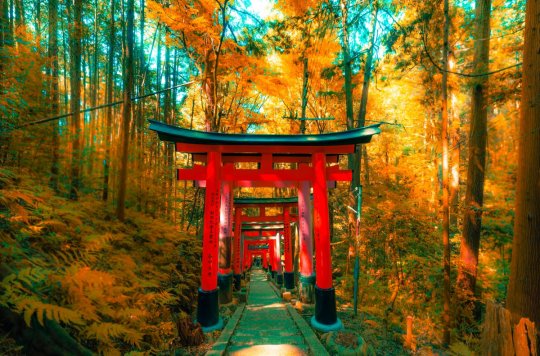
Furthermore, red, specifically vermilion, is very symbolic in Japanese architecture:
Red is the color of torii – Shinto shrine gates – temples, and traditional daruma dolls. Red is said to scare away evil spirits and represent protection, strength, peace, and power.
All in all, very fitting for the big brother and family protector, if you ask me.
Hamato 'Leonardo' Aoi
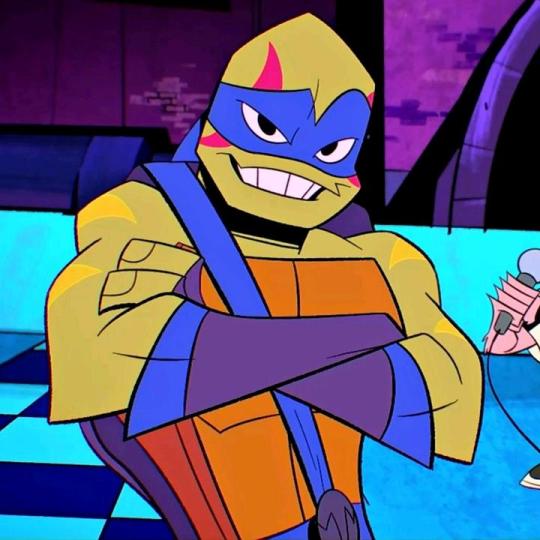
Aoi 青い = blue
Aoi is a unisex name; meaning hollyhock flower when used for girls and blue for boys. I'm using the male meaning for Leo.
Colour Symbolism:
Blue commonly represents the sea and the sky (for which Japan is surrounded) and symbolizes purity, dignity, calmness, stability, security, and fidelity. Blue is also regarded as a lucky colour.
In this case, blue is rather in juxtaposition with Leo's personality, but looking at it from a franchise perspective, blue is indeed a leader's colour.

Back then, Japanese society was strictly hierarchical and displayed through the colour of their robes. Of the colors that were allowed for common folk, the color blue was work by higher ranking people. It symbolized wealth and prestige, while also remaining a color of the common folk.
That being said, Leo's a little different from his predecessors. Eventually, he will grow into the role of the leader we know and love. But even when he was unburdened from being leader, he was still the strategist. Leo's leadership in fights is a balance between what is uniquely Rise and the mission-mindset of the leaders in blue who came before him, strategies that are fun, wacky and maybe a little unorthodox yet still as effective for the team.
Hamato 'Donatello' Sumire
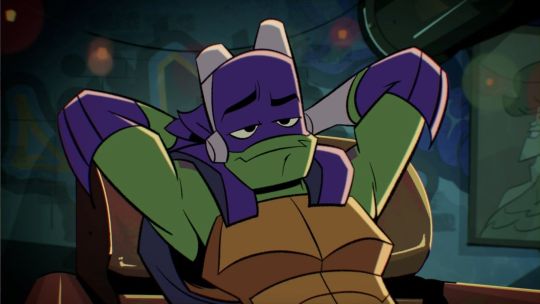
Sumire 菫 = violet
Sumire is usually a girl's name but I don’t think Splinter would’ve cared all that much about gender.
Donnie doesn't either and even likes his name, though it has caused him a lot of grief over the years. A lot of people think it's strange for a guy with his personality to have such a feminine name, and he's really sick of having to defend his name after introducing himself. Part of why he wanted 'Donnie'.
Colour Symbolism:
Like in the West, purple in Japanese culture is associated with royalty, as purple dye was rare and only available to those of a higher status. It can also reflect on nobility, spirituality, and wisdom.
Out of everyone, Donnie embraces his colour about the most. His clothes are purple, his tech is purple, his lab is bathed in purple lighting. Purple is Donnie's thing. This, in a way, ties in with the colour's exclusivity back then.

Flower Symbolism:
In Hanakotoba (flower language), the meaning of violet is sincerity, a small love, and a small bliss. Violets are a common gift, as they are an ideal way to show appreciation for a family member or friend and to express sincerity or love.
I think this is very Donnie. What he lacks in the emotional department, he makes up for through his tech. He creates things for his family, making them all kinds of personalised gizmo. Sometimes it results in disaster but the intention to help is there. Gift-giving is his love language.
Hamato 'Michelangelo' Mikan

Mikan 蜜柑 = tangerine
Mikan is a common Japanese girl name. Baby girls named "Mikan" are usually joyful, positive-thinkers, smiley and generally happy people.
Mikey loves his name and doesn't care that it's girly and cute, no matter how the others tease him about it. (SIDE NOTE: I swear the near-matching names wasn't intentional. I was just looking for a name that means mandarin orange for a bit I'm writing).
Colour Symbolism:
Orange is symbolic of love, happiness and the sun.
The youngest of the family, Mikey is optimistic and cheerful. He brings joy and colour to the household through his art. He encourages everyone to be express their love openly and always tries to be supportive.

Fruit Symbolism:
Besides good fortune, wealth and longevity, the fruit mikan can be tied to family because of its role in Japanese traditions. In Japan, there is a word “Kotatsu de Mikan”, which means:
A family sits around a kotatsu (a traditional Japanese table with an electric heater attached to the underside), watching TV and eating mikan — the traditional picture of a harmonious family seen in the wintertime.
TLDR; I really love how each turtle has a role to play in the family, how their respective colours are so appropriate for who they are as people, and I wanted their Japanese name to reflect that.
Mikey is all about family. He's the heart, always the peacemaker, always bringing everyone together.
----------
#the pics aren't mine#So many iterations of TMNT and no Japanese names?#A travesty#rottmnt#rottmnt raph#rottmnt leo#rottmnt donnie#rottmnt mikey#japanese names#rottmnt headcanons
2K notes
·
View notes
Text
🇧🇷:
Reblogue!
🇺🇸:
Reblog!
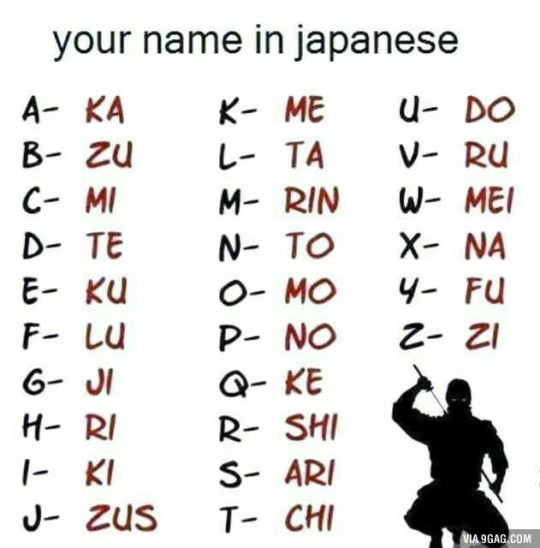
Zusdotakika - Júlia
@zenzen009 @just-cutie-avocado @yourmangogirl @leleamo @littengamer909 @novaexeverse @lizzie-wendigo @leaffiii @croc-pop @lucamisu
55 notes
·
View notes
Text
Goro and Akiren's names meaning
So, I've been going through a website for Japanese baby names with their written Kanji meanings too, for a future Akeshu post. and this also required me to visit the Megami Tensei Wiki of our boys to look at what their names mean and---
Akiren and Goro's parents had very different thought processes of importance when naming their newborns and it shows.
(no offense to any Japanese born with the name Goro, spelt with the same Kanji as P5's Goro, I just find this funny. This is purely making fun of a fictional character)
If you're on team Ren Amamiya for P5 Protagonist's name. You already probably know "Amamiya" means "Rain Palace". But what about "Ren"?
The Amamiya's named their son "蓮/Ren", which means "Lotus".
A Lotus flower is a symbol of purity, or "Strength, Resilience, or Rebirth".
For team "Akira Kurusu"
Kurusu means "Chestnut Grove". "Su" = "Nest" or "Grove", "Kuru" = "to come"
"Akira" spelt like this 暁
Means: "Daybreak" or "Dawn", or any form of "bright"
hey, maybe the Kurusu"s named their son after the time he was born.
and then there's Akechi----
The Surname 明智/Akechi (apparently read as "Meichi"??), is an uncommon spelling and means "Wisdom and Sagacity"
That's nice, fitting. Nothing wrong with that.
Now what about Pancake-boi"s first name?
Goro
Depending on what text characters you use, "Go" can mean "five" or "I, my, me, myself".
"Ro" means "Son, or Young Man"
the Kanjis for Goro"s name is indeed 吾郎
吾/Go = I, My, Me, Myself
郎/Ro = Son, Young Man.
MamaKechi really just named her newborn "My Son".
Alternate spelling with a diffferent "Go" Kanji, isn't any better
五 and 伍 = Go (the characters can also be read as Itsu-tsu, or Kumi) translate as "Five", so alternatively he would be named "Fifth Son", which wouldn't make too much sense on Mother's part because Goro is an only child on her side.
On Shido's end though, given his interaction with Women, who knows how many One Night Stand or One Sided Encounters that ended in children being born he's had at this point. Goro could be "Unintentional Half Child" number 5 or higher for all we know. But MamaKechi wouldn't know that.
Point is, why is the P5 fandom only roasting this man for his infamous "Delicious Pancakes" screw up, but not taking advantage of the endless potential of his first name meaning "My Son"?
Because, me personally, I find that hilarious. Oh, if the Phantom Thieves learned that they could tease him mercilessly to the point he drops the Goro entirely when introducing himself to new people.
the possibilities are endless!
Extra: His name being a nod to Kogoro Akechi, a fictional Detective isn't any better. "Kogoro" uses the "Fifth Son" Kanjis, with "Ko" meaning "Small, Tiny, Little". Inspired by a Detective from a mystery novel or not, his namesake inspiration could be translated as meaning "Tiny fifth son"
#persona 5 royal#persona 5#goro akechi#japanese names#kanji#i am not an expert#i just find this funny#ren amamiya#akira kurusu#akeshu#shuake#atlus games#endless possibilities#potential
39 notes
·
View notes
Note
HI can i have some water dragon names?? like just… related to water???? and dragons. or water dragons as a whole..??? i dont know.. but yeah!! water. dragons.. water dragon related names!!! any language origin is OK but i prefer japanese or russian..!!! thanks!!! >
here go barks
Japanese:
Mizuchi
Zennyo
Naga
Ryuo/Ryuoka/Ryuko
Akuma
Haku
Ri
Hai
Kannon
Sumida
Kirin
Han
Sue
Fuku
Shiro
Katsu
Kin
Kiyo
Hakone
Kasha
Tatsu
Ka
Yamata
Russian (there wasn't too much I could find, they didn't have a pantheon of dragons in mythology, just a protector dragon (Zmey) and the dragon whom guards the underworld (Chudo-Yudo). Top four are more related than the bottom two):
Zmey/Zmei
Zilant
Chudo
Kazan
Azhdaya
Aspid
Intersecting Category:
Azure
Drakon
Small list of water names:
Brook(s)
Marina/Marni
Ronan
Delta
Struan
Rivulet
Melusine/Meluise
Cove
Mar
Daria
Pier
Lucerne
Nerissa
Amaya
Aegir
Marella
Beckett
Conway
Lupeta
Riata
Severin
Thames
Andreus
Carlow
Kendra
Talise
Calan
Dalas
Irving
Chamiree
Nala
Nen
Salil
#nonbinary names#masculine names#feminine names#japanese names#japanese mythology#russian mythology#russian names#name request#water dragon#water
12 notes
·
View notes
Text

Below the cut will be a list of some of my favorite Japanese names. I like to write a lot of original characters that are based in different animes, so I thought this would be useful to have. These will be placed under a read more, as this post got quite long. There are 70 feminine names, 75 masculine names, and 31 gender neutral names. Please like or reblog this post if you found it useful. Thank you. :)
Feminine Names.
Airi.
Aina.
Amane.
Ami. / Aimi.
Anzu.
Asuna.
Aya.
Chidori.
Chiharu.
Chou.
Danuja.
Doi.
Ema.
Emica. / Emika.
Emi.
Emiko.
Etsuko.
Gina.
Hatsue. / Hatsu.
Hana.
Hanae.
Hanakao
Haruka.
Himari.
Himwari.
Hina.
Honoka.
Kairi.
Kaori.
Kanna. / Kana.
Karin.
Katsumi.
Kyoko.
Machi.
Mai.
Manae.
Mari.
Matsuri.
Mayumi.
Megumi.
Mei.
Midori.
Mika.
Mina.
Mirai.
Misa.
Misaki.
Miyah.
Miho.
Naho.
Nako.
Nami.
Nanami.
Naomi.
Reina.
Rei.
Rena.
Rika.
Sakura.
Saori.
Sarina.
Sayuri.
Seika.
Seina.
Shizuka.
Tae.
Tora.
Yuka.
Yuna.
Yurina.
Masculine Names.
Akane.
Akihito.
Akito.
Anji.
Arata.
Benjiro.
Choei.
Daihachi.
Daiji.
Daijiro.
Daisuke.
Daishiro.
Eiji.
Enzo.
Etsuji.
Genji.
Gorou.
Hajime.
Haruto.
Hatsuo.
Hideji.
Hiro.
Hiroshi.
Hiroto.
Hisaki.
Hyuga.
Judai.
Jun.
Jun'ichi.
Junpei.
Kaito.
Kakashi.
Kanji.
Kazuki.
Keitaro.
Kenji.
Ken'ichi.
Kentaro.
Kenzo.
Kiyoshi.
Koji.
Kota.
Kyo.
Masao.
Michaiki.
Mitsuhide.
Mokuba.
Naoki.
Naoe.
Renji.
Riku.
Ryo. / Ryu. / Ryou. / Ryuu.
Ryota.
Ryuuji.
Sasuke.
Satoshi.
Satoru.
Seto.
Shinji.
Shino.
Shintaro.
Soma.
Tadashi.
Taichi.
Takahashi.
Takeshi.
Taro.
Tooru.
Yota.
Yudai.
Yugi.
Yuji.
Yuma.
Yusei.
Zenji.
Gender Neutral Names.
Akari.
Akira.
Akihito.
Asuka.
Ayame.
Chiyo.
Dai.
Daichi.
Haku.
Haruhi.
Haru.
Hikaru.
Hikari.
Hinata.
Ino.
Kaeda.
Kai.
Kaoru.
Kenta.
Kita.
Minato.
Mitsuki.
Nara.
Noa.
Reiji.
Ren. / Rin.
Sato.
Shin.
Shion.
Shun.
Shuya.
Sora.
Yui.
Yuki.
#masterlist#mine#my masterlist#japanese names#japanese names masterlist#japanese names list#feminine japanese names#masculine japanese names#gender neutral japanese names#feminine names#masculine names#gender neutral names
5 notes
·
View notes
Text
Ive realized first hand why reading fanfiction of something you are creating is a Bad Idea
Ive been trying to rewrite the sequel to Megamind, using whatever summary google made up for The button of Doom, and the og movie itself for inspiration, and the trailer/various edits of trailer/whatever i could glean from all those rants about Why its Bad
.And then, out of curiosity i go read the transcript
Turns out that the girl apprentice has a name That JUST HAPPENS TO BE ONE OF THE NAMES I SHORTLISTED FOR HER(and really, its just bad, messy, do i think i should go practice writing transcripts for my fav movies along with stage directions and expressions like half the magic of a movie is on screen and look i have issues with the megamind sequel just aargh.)
Anyway, it kinda spoilt my mood to write (not)
Bottomline, maybe think about NOT sending fanfiction to your fav authors(especially when the story is still being written)(dunno about when the inspiration well is all dried up ) (i know its a prideful moment to write something and want to share it with the world(for that im proud of you) but really , just think about it
#Her name is keiko btw#Its a good name#I was about to give her some H name with 7 letters meaning lily child#Japanese names#writing community#inspiration#megamind#megamind vs the doom syndicate#megamind rules
5 notes
·
View notes
Text
A poll about something I noticed
Someone I know who is white got reprimanded anonymously for using Japanese names they’d taken from anime characters they liked. The anon said that it was cultural appropriation and disrespectful for Japanese people, and this upset the other person. Another person in the chat said it was okay as long as they acknowledged the culture behind the name. As a white person, i can’t really speak on the matter, but I thought this was interesting, so here’s a poll about it.
reblog for sample size or don’t idc
#actual sugar post#just to see#poll#polls#tumblr polls#tumblr poll#cultural appropriation#Japan#Japanese culture#Japanese names#anime#idk
17 notes
·
View notes
Text
MASTERLIST DE NOMES JAPONESES (FEMININOS, MASCULINOS E NEUTROS)
olá pessoal, tudo bem? escrevi essa masterlist pra quem, como eu, curte fazer uns personagens japoneses em seus 1x1 e em comunidades e sempre tem que ficar procurando uns nomes no google. aqui tem alguns dos meus nomes femininos, masculinos e neutros preferidos que coletei pela internet afora. espero que gostem!
obs: alguns nomes da lista dos nomes femininos e masculinos também podem ser considerados neutros, assim como alguns neutros são ditos como masculinos/femininos em alguns sites, então não levem tão ao pé da letra!

nomes femininos:
Akari
Asami
Asuna
Azumi
Cho
Hana
Harumi
Hina
Hinata
Hiromi/Hitomi
Izumi
Kanako
Katana
Kaori
Keiko
Kyoko
Kimi
Mai
Masako
Masami
Mayumi
Mei
Mika/Miki/Miku
Misa
Miyah
Mizuki
Nagi
Nana
Nanako
Nara/Nari
Nishi
Rei
Risa
Sakura
Saori
Sayuri
Seika
Shion
Suki
Takara
Taki
Tami
Toshi
Usagi
Yoko
masculinos:
Akihiko
Akito
Asahi
Asuka
Daichi
Hachi
Hachiro
Haku
Haruto
Hideki
Hiro
Hiroto
Hiroshi
Hoshi
Ichiro
Itsuki
Jun
Kaito
Katashi
Katsu/Katsuo
Kazuki
Ken
Kenji
Kentaro
Kenzo
Koya
Kyo
Makoto
Matsu
Minato
Miho
Natsuo
Nori
Ren
Ryo/Ryu
Ryota
Shin
Shiori
Shohei
Shota/Sota
Shun
Tadaki
Tadashi
Taichi
Taiki
Takashi
Takato
Takumi
Tarou
Yamato
Yuta/Yuto
Yukio
neutros:
Aoki
Akira
Asuka
Haru
Haruki
Hikari/Hikaru
Kei
Kiyoshi
Kuma
Maki
Masaki
Midori
Natsu
Niko
Rin
Sora
Taru
Tokyo
Yoshi
Yuki
Yuri
#haru ! masterlists#masterlist#japanese names#name masterlist#masterlist nomes#nomes japoneses#helper rpbr#helper krpbr#masterlist rpbr#masterlist krpbr#resources ! masterlist#haru ! meus
41 notes
·
View notes
Text
Japanese names
Not exactly sure who this is relevant to but it always gets to me when I read fics for anime and people get the name order wrong. This is all coming from a Japanese person btw.
So unlike English where its “first name” “last name” its the opposite, so your family name comes first. So it tends to be more formal to call people by their family name but that doesn’t mean that thats always the case. Until the end of middle school, basically no one refers to you as your family name unless its during role call or someone's personal preference. When you get to high school, it becomes slightly more normal but most people stick to second name basis.
In a fic I’m reading rn (its a bsd fic) - every time the characters have an angsty moment, they call each other their last name (i’m sure its coz the author thought it was the other way around and got it mixed up) but if using the name Osamu Dazai as an example- Dazai is his personal name- therefore calling him Osamu is less personal, and much more on the formal interaction side.
As for anime such as haikyuu, I still wonder why they have people in the same age category calling each other by their family name but I suppose its plausible. But how the third years talk to each other, for example Suga referring to Daichi as his family name in front of younger members then his second name when its just the three of them (Suga, Daichi and Asahi), which is what our senior vb members are like.
As for people who want to use terms suffixes end thingys like “chan” (which is pronounced ch-u-n btw) and “Kun” (k-n).....just don’t-. It comes off as kinda cringe especially when used wrong but if u rlly must- here’s how u should use it.
Stereotypically chan is for little girls and kun is for boys. Chan can still be used for girls when they’re older but boys typically dislike being called X-Kun past the age of like 10. Chan can also be used for boys and I’m sure if you’ve watched anime before you’ve heard the term “onii-chan” which means older brother in a cutesy, childish sort of way but isn’t exclusive to your actual older brother. For example you can use it for any male figure a couple years older than you who is close to you, older siblings of friends, and cousins. When attaching chan onto someone's name, the actual name typically gets shortened, like in Haikyuu when Hinata’s middle school friends greet him they call him “Sho-chan” instead of “Shouyo-Chan” another example is my older cousin; his name goes from Akihito to Akii-nii-chan. Same with one-chan, but names tend to get shortened less.
Senpai is also a term that gets used way less than you’d think, so don’t over use that one either. The most I’ve ever heard it get used is teachers referring to older students who may be able to help us with something.
“See if your senpai can help you with this”.
Anyways, hope this helped!
#japanese#anime#haikyuu#bsd#senapi#naming#japanese names#from a japanese person#its like seriously a pet peeve of mine#hitana#dazai#as examples
17 notes
·
View notes
Text
Akeshu Daughter name voting (Ren Amamiya ver)
Context and meanings for name choices below the poll. PLEASE, CHECK AND READ THOSE BEFORE VOTING
Reasoning for names, and name meanings below:
雛花/Hinaka
雛 means “chick, fledgling, young bird.”
(All things referring to a bird, obviously. Akechi"s Metaverse codename is "Crow", so this would be a nod to that)
花 means “flower.”
(Kanji for "Ren" means "Lotus", and since Lotus is a flower, the "花" in this name would be a reference to Ren's namesake)
強華/Tsuyoka
強 means "strong, powerful, intense."
(this could work to describe both Akiren and Akechi)
華 means "flower, splendor, brilliance."
(flower = nod to Ren's name meaning)
吾花/Waka
吾 means “I, me, myself.”
("吾" is the same kanji for "Go" in Goro's name)
花 means “flower.”
(I explained above, this would be referencing Ren)
#persona 5 royal#persona 5#akiren#ren amamiya#goro akechi#akeshu#shuake#ren x akechi#1 day poll#baby names#akeshu child#japanese names#poll results
21 notes
·
View notes
Text


I’m happy that Last Week Tonight with JO is back on HBO, and I’m proud to be a SodaStream Boycotter who loves saying “Putz” a lot.
#layouts#screenshots#collages#background remove#ai art experimenting#ai art practicing#fanart#made by friend#hobby#habit#gumoko#shirakage mouse#aliases#gumoko chan#spider persona#danger mouse oc#former fanfic writer#danger mouse 2015#japanese names#spider child#white shadow#cosplaying#black haired#spider man phase#spidey kun#felicia hardy#spider man kiss#spider man the animated series#punk rock look#marvel superhero
5 notes
·
View notes
Note
Alrighty, a question! Don't exactly even need to know, but I'm curious. Which japanese names are used gender neutral?
I have heard of a few, like Tsubaki, Akira, Minato and so on, but a list would be nice.
On another note, Erika is a japanese name as well as german, right? Like Yuka is both an Inuit and japanese name x3 I do find it funny that complete different ends of the world could have such small things in common.
gender expressions & impressions of jp given names depend on: (1) the precise characters it comprises of, (2) the reading it uses, (3) societal trends and sentiments, and (4) each individual’s personal perception (and experience) of gender and the name. therefore, sooooo many names out there can be considered unisex and/or gender-neutral! there are hundreds of thousands of possible character combinations you can use to create given names, and what’s more to love is that unisex and gender-neutral names are pretty sought-after, especially in the modern day and the foreseeable future. we love our unisex names and we’re very proud of them!
if there’s any specific theme of names you’d like to see, you can send in an ask with your criterias and i’ll compile you a list. besides my gdoc of rare and unusual jp given names i shared in my previous post, i also have this gdoc of generic/basic/average jp given names you can sort through if you’d like.
indeed, erika and yuka are names that can exist in the jp language. maybe this tip will help with remembering and identification? you can make given names out of almost any set of syllables from the japanese syllabary, as long as it’s within reason (e.g. sounds good as a name, seems logical or plausible, 1–5 syllables in one name, etc.).
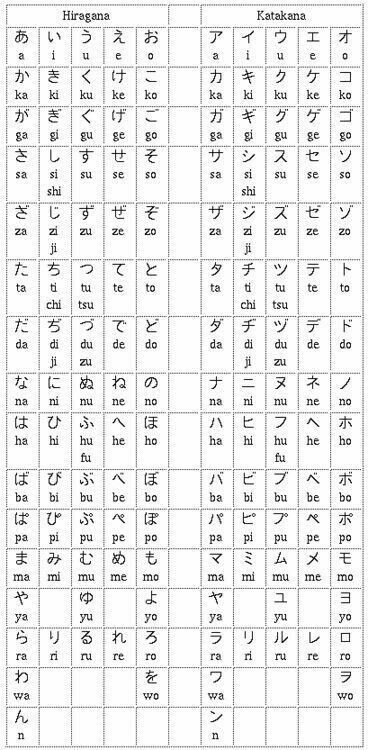
(apologies for the deep-fried quality haha—this is the only kana-to-romaji chart i have ever saved, because i prefer linguistic charts to be as plain-colored, plain-fonted, and plain-formatted as possible.)
for clan/family names however, the rules aren’t as lax because most of them follow kanji and the most standard readings for said kanji. a small % of family names have a mix of kanji + kana in them, which still follow the standard readings of the kanji + of course the unchangeable readings of the kana. only very few (native, non-transcribed) family names out there are entirely written in kana (a real-life example of this is つわぶき峻 Tsuwabuki Toshi, the stage actor who played sakusa in the haikyuu stageplay). oh, and, because we can never have too many exceptions, jp culture also has this very unique occurrence where sometimes, some certain family names get to be as lax as given names in terms of the grapheme-to-phoneme relation, and some people have decided use this opportunity to be very punny wordplayers. these are very few in number, however, and they have history behind them! so i wouldn’t recommend the average writer/artist/fictionist to come up with some on their own. examples of this last one:
一 Ninomae | 一 means “one” | “ninomae” sounds like you’re saying 二の前, “before two”
小鳥遊 Takanashi | 小鳥遊 means “small birds play” | “takanashi” sounds like you’re saying 鷹無し, “there are no hawks/eagles” | ergo, small birds play outside because there’s no hawk preying around.
四月朔日/四月一日/四月朔/四月朔月 Watanuki | 四月朔日/四月一日 means “first of april” | “watanuki” refers to this word 綿抜き, “cotton-stripping; to take out the cotton [padding]” | there’s an old tradition of changing winter-wear cotton-lined warming robes and kimono into lighter summer-wear garments in the 1st day of the 4th lunar month, which is said to prevent children from suffering diseases and potentially dying. i’m a bit confused at what the big deal is with this tradition, because it just seems like common sense to me? seasons change and so do your clothes. that’s normal.
月見里 Yamanashi | 月見里 means “moon-viewing village” | “yamanashi” sounds like you’re saying 山無し, “there are no mountains” | ergo, you can see the moon and do some stargazing if your view isn’t obstructed by mountains. although, i have to point out the fallacy in this logic, as someone who lives surrounded by 3 whole mountain ranges, i know fully well that mountains only obscure a very small % to none at all of your ground view of the night sky. “starless” nights are all the clouds and pollution’s fault! so really, this name should’ve been called Kumonashi (from 雲無し, “cloudless”) instead.
i could’ve sworn i knew more than 4 of these punny family names...
(edit: i found more!)
飛鳥 Asuka | 飛鳥 means “flying bird” | “asuka” refers to the place name 明日香 (“tomorrow fragrance”) | basically, what happened here is that the word 飛鳥 (hichou), coming from the phrase 飛ぶ鳥の (tobu tori no, “flying bird of...”), became a pillow word for the place known as Asuka. both spellings were historically interchangeable.
春日 Haruma, Kasuga, Kasuka | 春日 means “spring sun; spring day” | the word 春日 (shunjitsu/haruhi) was used as a pillow word to introduce the place name Kasuga (which presumably had no kanji writing prior to this?). existing logical readings for 春日 include Haruhi and Haruka.
漢 Hata | 漢 means “han chinese”, the worldwide major ethnic group originating in china | “hata” sounds like you’re saying はた/端, “nearby; besides”
日向 Higa, Higano, Hina, Hinada, Hinata, Hiuga (Fiuga), Hyuga, Hyuuga | 日向 means “in the sun; [facing] towards the sun” | (1) for the Hinata reading; this name is composed of 日 (hi, “sun”) + な (na, old japanese possessive particle, equivalent to modern の) + た (ta, “direction; side”, archaic equivalent of 方). (2) for the Fiuga, Hiuga, and Hyuuga readings; dialectal differences shifted old japanese reading “Pimuka” into “Fimuka” → “Fiuga” → “Hiuga”. southern dialects and languages tend to have this fi- sound that’s nonexistent up in the north. (3) Hiruga may be explained as 「昼日」 (hiru + ka, “daytime sun”) with a rendaku 日 (turning the “-ka” into “-ga”, which is unnecessary, because rendaku doesn’t commonly happen to 日, but everything is full of exceptions today, so... 🤷). existing logical readings of 日向 include Hikou, Himuka, Himukai, Himuki, and Nikkou.
陽向 Hizashi | 陽向 means “in the sun; [facing] towards the sun” | “hizashi” sounds like you’re saying 日差し (may also be written 陽差し、日射し、陽射し、日ざし、陽ざし、日差、or 陽射), “sunlight; sunshine; sun rays”
五十嵐 Igarashi | 五十嵐 means “fifty storms/tempests” | “igarashi” sounds like you’re saying 伊賀嵐, “iga [city] storm” | i believe this may be a reference to the huge storm in 1612 which destroyed the famous iga-ueno castle.
五月雨 Samidare | 五月雨 means “fifth [lunar] month rain”, referring to the heavy rains that occur around early summer | “samidare” sounds like you’re saying 早水垂れ, “early rain fall” | this is a word (for the seasonal occurrence), a place name, and a destroyer name; not family name. i just thought it was cool enough to mention here!
時雨 Shigure | 時雨 means “timely rain; winter rainfall” (originally referred to rainshowers in late autumn to early winter, occasionally late summer and all of autumn too, but today, shigure only refers to a winter rainshower) | “shigure” sounds like you’re saying the classical/literary verb 時雨れる, “to rain a shower” | the history is a bit blurry on this one. 時雨, as a word, was an orthographic borrowing from chinese. it happened a hefty long time ago, and was incorporated into old japanese as the classical verb 時雨る (shiguru), which was later given the modern rendering 時雨れる (shigureru), which then presumably became the clan name Shigure.
日本 Yamatono | 日本 means “base/foundation/origin of the sun” and is the modern name for japan | “yamatono” sounds like you’re saying 大和の, “of the yamato people’s” | 大和 (yamato) was the ancient name for japan before it was changed to 日本 (nihon/nippon), and also the name of an ancient province, the name of the current dynasty (and consequently, the imperial family as well), the name of an old battleship, and is sometimes still used to refer to japanese people in a historic way. it’s worth noting that the reading of “yamato” itself isn’t grammatically logical for the kanji 大和. my best theories as to how 大和 became yamato are: (1) homophone of 山都 (“mountain metropolis”), (2) homophone of 山門 (“mountain gateway”), and (3) homophone of 山人 (“mountain people”); but i haven’t seen any proper, in-depth linguistic study done on this, so i can’t guarantee anything. the kanji 倭 [yamato, shitaga.u | wa, i] was likely based on 大和 after it got its “yamato” reading, so 倭 isn’t an important factor in this discussion (as of right now, at least).
hope this answers your curiosity!
#japanese names#japanese language#japanese linguistics#japanese culture#japanese family names#names#given names#family names#sino family names#sinitic names#sinosphere#onomastics#unisex & gender-neutral#japanese wordplays#japanese puns#gdoc links#skipper answers#rlppl: iced baby
30 notes
·
View notes
Text
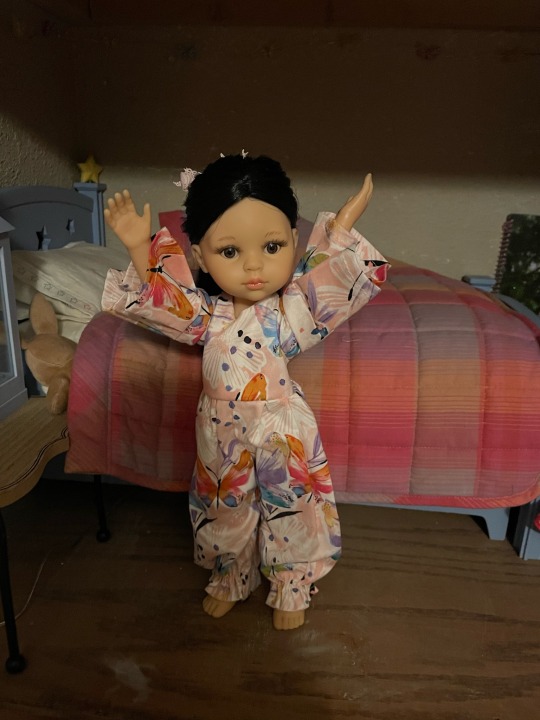
My Paola Reina doll :) her name is chika which in Japanese means scattered flowers or wisdom
#kidcore#toycore#self compassion#Paola Reina#doll collector#doll#healing my inner child#wishes upon a star#my new blog#blog post#Japanese names
2 notes
·
View notes
Text
A Japanese male name for Dandy 704 could be Naoshi. This could be for your weeby Synth AUs where he needs a Japanese male name for some reason.
This is because 704 can be pronounced “Naoshi” in Japanese.
7= “na”
0= “o”
4= “shi”
4 can also be pronounced “yo,” so if you ever need to genderbend this version of Dandy, “Naoyo” is a female name.
#dandy 704#chipspeech#Pastell learns japanese#Japanese wordplay#japanese names#synths#voice synths#vocal synths
14 notes
·
View notes
Text

Hijōaikami 火上愛神 - m/f (Japanese) fire-headed deity of love
From Japanese:
Hi 火 çi\ - fire, flame, light, blaze
Jō 上 dʑo\: - above, top, superior, upper part, head, summit, going up, lord, sovereign, over, up
Ai 愛 a\i - love
Kami 神 ka\mʲi - deity, god, goddess
------------------------------------------------------------------------------
The element jō 上 could also imply hair, a crown, or a halo.
IPA Pronunciation: çi\dʑo\:a\ika\mʲi
Photo by Ioana Motoc from Pexels
#Japanese names#gender neutral names#deity names#fire names#flame names#light names#head names#crown names#halo names#love names#god names#goddess names#character inspo#names#name inspiration#name ideas#name suggestions#character names#name inspo#name aesthetic#name
48 notes
·
View notes